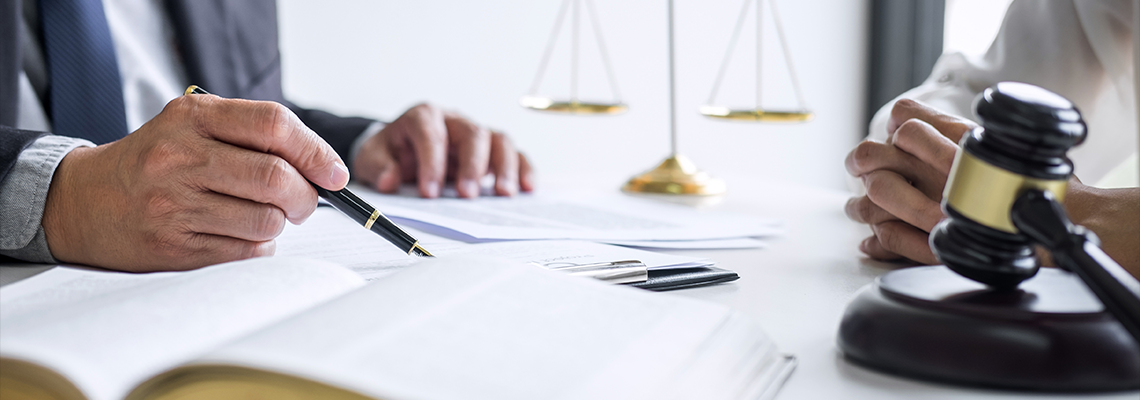
INFORMAL DISCOVERY CONFERENCE
MAY MITIGATE COSTS
Before any case goes to trial, there is a period for what is called “discovery.” Discovery is the phase when both sides collect and exchange information about the case, including relevant documents, witness statements, and more.
Suppose you’re in the process of filing a breach of contract lawsuit. Your attorney will submit what are called “interrogatives” to the defendant’s attorney who has 30 days to provide responses or objections. The party receiving the responses (your attorney) then has the option of filing a motion for further responses if he or she deems the original responses were inadequate, devious, or otherwise lacking.
The discovery process is often the costliest part of any legal action, even if a settlement is reached before trial. If the discovery process is dragged out by motions for further responses, both the costs and time involved will increase.
Fortunately, in California, there is an alternative to continued motions for further responses, which is an Informal Discovery Conference (IDC). IDCs can save both time and money and often lead to a resolution of discovery issues that facilitate the legal process going forward.
If you’re contemplating civil litigation or are being sued in or around San Francisco, California, or nearby in San Jose, Santa Clara, San Mateo, Oakland, or Alameda County, contact the Law Offices of David H. Schwartz, INC.
Attorney Schwartz has 45 years of experience in civil litigation and will work with you to make the discovery process as seamless and cost-effective as possible while striving for the best possible resolution of your case.
Motions for Further Response
Once an attorney receives the other party’s responses to the submitted interrogatives, the California Code of Civil Procedure (CCP) allows that attorney to file what is called a Motion to Compel Further Responses to Discovery. The attorney has 45 days to do so, but in order to, the CCP requires “reasonable and good faith attempts” to meet and confer on the issues.
If those meetings prove unsuccessful, the CCP’s requirements for a motion for further responses include the preparation of countless charts, declarations, and memoranda of points and authorities. Plus, each response in contention requires a separate motion, and each motion carries with it a filing fee. Costs rise accordingly.
The Informal Discovery Conference (IDC) Option
For years, the courts recognized the use of Informal Discovery Conferences, but there was no established procedure for ordering or recognizing them until (then) Governor Jerry Brown signed A.B. 383, which took effect on January 1, 2018.
The bill added Section 2016.080 to the CCP, providing that a court may conduct an IDC either upon request of a party to the lawsuit or on its own motion “for the purpose of discussing discovery disputes between the parties.”
Another benefit of A.B. 383 is that it allows the period for filing the motion to be extended past 45 days while the parties engage in an IDC. The CCP now permits the court to “toll the deadline for filing a discovery motion or make any other appropriate discovery order.”
Either party can request an IDC, but they must submit a declaration that both sides have engaged in a reasonable and good faith meet-and-confer. If the court does not grant or schedule the IDC within 10 calendar days, it is considered denied.
How each court, or judge for that matter, handles the IDC may well differ. Some IDCs may be held in conference rooms or online meetings.
Hopefully, an IDC will resolve the issues regarding discovery or lead to a settlement before matters go to court. In any case, the statute states, “The outcome of an informal discovery conference does not bar a party from filing a discovery motion or prejudice the filing of a discovery motion.”
If the IDC does resolve matters one way or another, there will be savings in both time and money. Each motion requires the preparation of a lot of supporting materials, which means staff hours of preparation time, each hour being billable to you, the plaintiff or defendant.
Let the Law Offices of David H. Schwartz, INC. Help
A motion for further response may well be necessary if the other side is not being cooperative or is trying to hide things, but if added motions and courtroom time can be avoided, the savings can be tremendous. Attorney Schwartz will be able to assess what is most needed in any civil litigation and will choose the route of the IDC whenever appropriate to save you money and the headache of endless litigation.
If you’re considering a civil lawsuit or have been served with one, contact the Law Offices of David H. Schwartz, INC. immediately. Attorney Schwartz will represent you vigorously and strive to mitigate costs through Informal Discovery Conferences when appropriate.
The Law Offices of David H. Schwartz, INC. serves clients in the San Francisco Bay Area, as well as San Jose, Santa Clara, San Mateo, and Alameda County.
